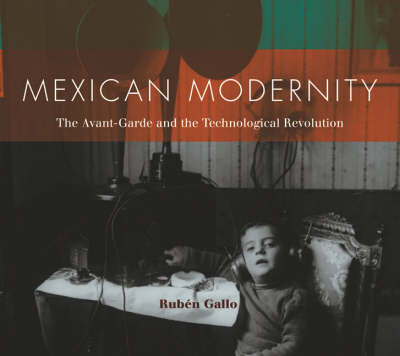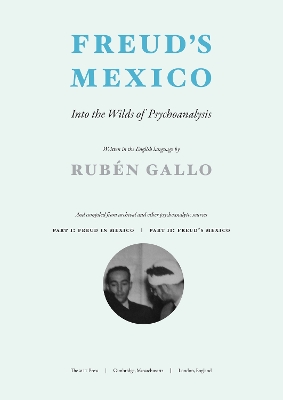The MIT Press
2 total works
Gallo traces the ways artists and writers, armed with these artifacts, revolutionized representation by breaking with the traditional modes of production that had dominated Mexican cultural practices: Tina Modotti rose against the conventions of "artistic" photography by promoting a radically modern photographic aesthetics; typewriting authors rejected the literary precepts of modernismo to celebrate the stridencies of mechanical writing; and young architects abandoned older building materials for the symbolic strength of reinforced concrete. Gallo uncovers a secret history of Mexican modernity that includes a number of fascinating episodes: the pictorialist backlash against Modotti and Edward Weston; the postcolonial Remingtont typewriter; Mexican radio in the North Pole; the campaign to aestheticize cement through journals and artistic competitions; and the protofascist political spectacles held at Mexico City's National Stadium in the 1920s.
Freud's Mexican disciples, Mexican books, Mexican antiquities, and Mexican dreams.
Freud's Mexico is a completely unexpected contribution to Freud studies. Here, Ruben Gallo reveals Freud's previously undisclosed connections to a culture and a psychoanalytic tradition not often associated with him. This book bears detailed testimony to Freud's relationship to a country he never set foot in, but inhabited imaginatively on many levels.
In the Mexico of the 1920s and 1930s, Freud made an impact not only among psychiatrists but also in literary, artistic, and political circles. Gallo writes about a "motley crew" of Freud's readers who devised some of the most original, elaborate, and influential applications of psychoanalytic theory anywhere in the world. After describing Mexico's Freud, Gallo offers an imaginative reconstruction of Freud's Mexico: Freud owned a treatise on criminal law by a Mexican judge who put defendants-including Trotsky's assassin-on the psychoanalyst's couch; he acquired Mexican pieces as part of his celebrated collection of antiquities; he recorded dreams of a Mexico that was fraught with danger; and he belonged to a secret society that conducted its affairs in Spanish.

